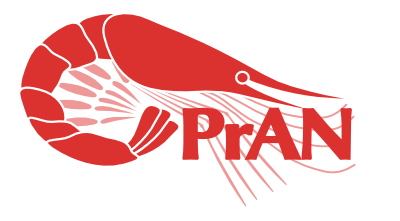
A plugin manager for Praat
TL;DR: Check out the current implementation here and read about how to install it here. Read about how to use it here.
The problem
Praat has a rich user base, and a versatile scripting language, which would lead one to expect it to also have a significant number of user-created scripts to extend the behaviour of Praat for specific tasks.
This is true to a certain extent. But whatever exchange and code sharing that does take place, does so in a very de-centralised way. There are some sites out there that try to solve this by offering lists of scripts that can be used either independently or in unison. But since they are all the result of individual efforts, they tend to be largely unmaintained and easily forgotten. Indeed, while getting the links to the sentence above I came across a large number of broken links to other similar sites.
A side effect of this is, of course, that it is very hard to keep tabs on what is out there, and of when any of those are updated or abandoned.
Pair this with the lack of generally accepted coding guidelines, many different ideas about how scripts should behave and what they should do, and a worrying number of idiosyncratic coding practices, and you inevitably arrive at the point where the scripts that are out there offer no guarantee of interoperability, and no clear channels through which to report problems. This is where we are today.
Researchers will often find a script that is designed to do a very specific task, and will then modify it to do another very specific task, sometimes taking the bits of relevant code from another script that was also written with a very specific task in mind. Most of the time, this will be done without really understanding what the source scripts did in the first place.
The result is more often than not, a script that is messy, buggy, inefficient, hard to understand and impossible to maintain. And when a good enough number of such scripts is collected, they will be put up in a website somewhere. Rinse and repeat.
Now, this does not mean that there are no good and interesting projects out there, or good, well though-out sets of scripts or tools to use as elements in your own work. It also does not mean that there are no people writing quality code in Praat. But it does mean that for every good script out there, there are a lot more that aren’t.
The whole point of having a scripting language in the first place is to facilitate reproducibility, which is a key aspect of the scientific endeavour. But the practices that we’ve developed as a community of Praat users lead exactly in the opposite direction.
In fact, I have got to a point where I often don’t even bother to look.
This is not code re-use. This is not code sharing. What we have is a culture in which these practices are generally difficult. What we need is to generate a space that makes these practices inevitable.
A solution
One possible solution for this is to have a single centralised space where scripts and tools are placed for everyone to see. That makes it easy to search for updates and documentation. That makes it easy to report specific bugs and get help, and to submit bug fixes if they are necessary.
None of this is revolutionary. Indeed, most of us use spaces like this everyday: if you use R, you’ve probably used CRAN. If you use (La)TeX, you’ve probably used CTAN. If you use Perl, you’ve probably used CPAN (and you’re probably starting to see a naming pattern here). Most GNU/Linux distributions use similar systems themselves. Homebrew attempts to offer the same platform for MacOS. Etc.
A package manager, in the tradition of those mentioned above, is what I think the Praat community lacks. And that is what this project will attempt to offer.
CPrAN will be the Comprehensive Praat Archive Network.
And in fact, most of the work is already done for us. Praat already has features that facilitate code sharing and reuse: plugins. All we need is to make it easier to share plugins, and to make it easier for plugins to use each other.
Let’s make one thing clear: even if such a system were to be established, it would not be the automatic solution to the problems highlighted above. The solution to those problems needs a community, not a platform. But the platform can help us build a community. That’s what we’re after.
The design
The way I imagine this to work would be with a central repository for Praat that concentrated code submissions. They could then be held up to some standard in terms of a guarantee of interoperability, level of documentation, etc.
The repository would have an API that would allow any compliant client to search, browse and download the hosted plugins, as well as keep them up to date and remove them if desired.
The client would make sure to install any requirements that exist, and hopefully to test each plugin as it is installed, to ensure that no broken plugins are installed (like most package managers out there currently do).
And the best thing about all this is we already have a working prototype. Go read that page to see what the current implementation looks like and how you can try it out yourself today.
